CRM Automation in 2024: An In-Depth Guide
Customer Relationship Management (CRM) software has been used around marketing since the 1990s to collect and analyze customers’ data in one place. Marketing leaders leverage CRM automation tools for tracking customer databases, creating lead scores, and analyzing customer behavior. However, looking at Figure 1. marketers spend ~2 work days per week on routine CRM tasks such as data collection, lead scoring, and email campaigns.
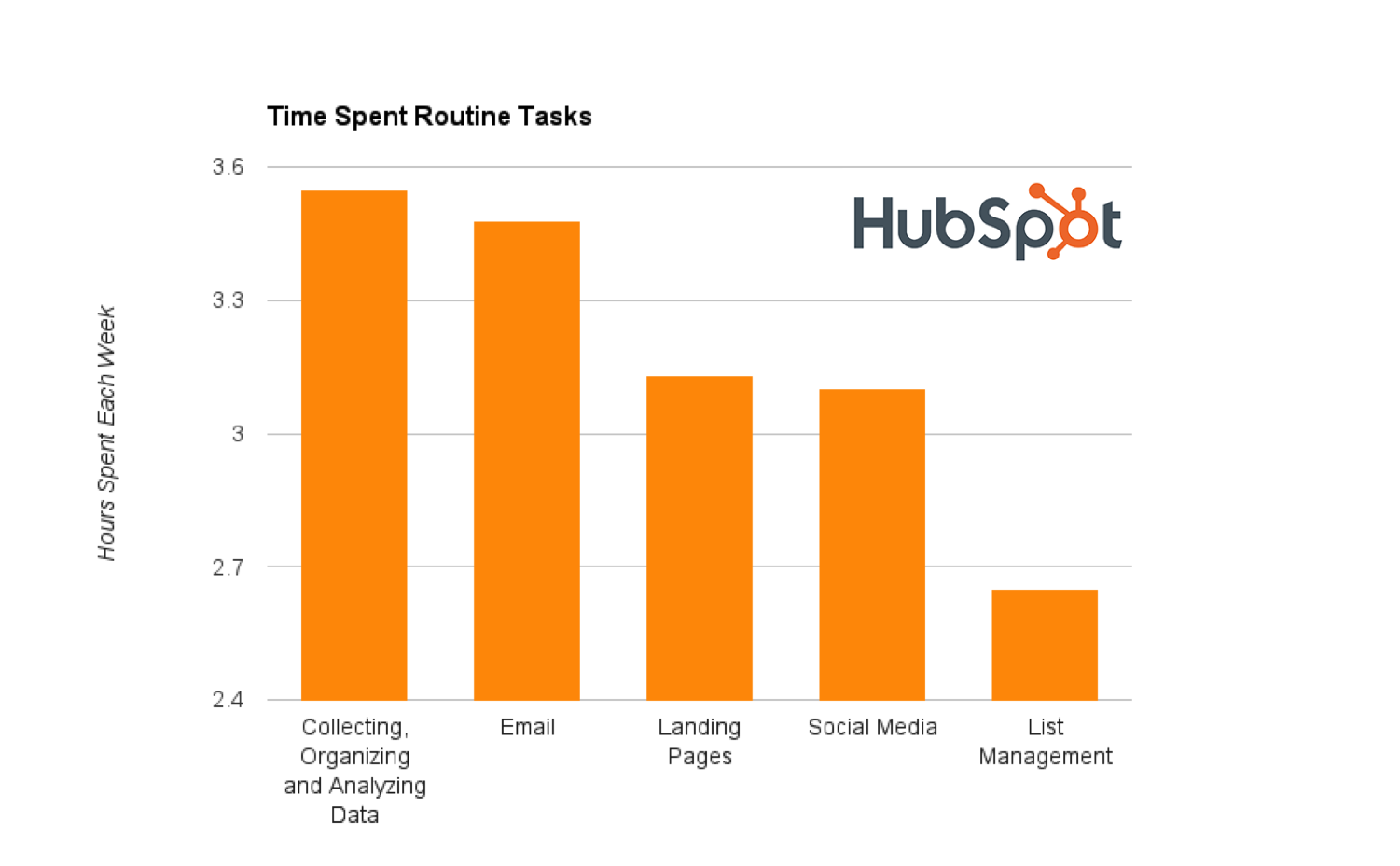
In this article, we explore tasks that can be automated in CRM (e.g. call scheduling, documentation), and how RPA and conversational AI can be used to automate them.
Why should marketers automate CRM?
Marketers have reported that some of the major challenges they face include customer data management (e.g. data entry, cleaning, and transfer between marketing systems), content creation (e.g. customized emails and campaigns), lead scoring, and analytics, which are functions of CRM automation (see Figure 2).
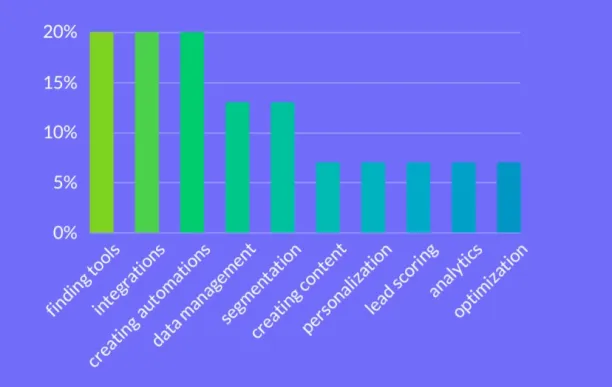
Which tasks can be automated in CRM?
- Marketing functions such as generating marketing content and campaigns, as well as lead scoring.
- Sales functions such as scheduling calls or meetings, and processing purchases.
- After-sales / customer service functions such as managing customer data, and collecting feedback.
Marketers can leverage different types of software to automate these functions.
Which tools can be used for CRM automation?
Depending on the function, marketers can leverage:
No-code
CRM systems that use code frequently require extensive coding and rely on IT help for updates. Users of low-code/no-code platforms can create custom applications for process automation through user-friendly drag and drop interfaces without the need for in-depth coding knowledge.
Through low-code/no-code development tool integrations, users can implement various operations without IT support, including but not limited to:
- automating lead notifications
- creating personalized marketing campaigns
- integrating location based services.
For those interested, here is our article on how no-code CRM systems work.
RPA bots
RPA bots automate repetitive rule-based tasks by replicating user interactions with GUI elements. In CRM, RPA bots can be used for:
- Generating mass campaign emails: Bots can be programmed to fetch data from marketing databases to create personalized campaigns and send them to numerous customers and leads at the same time.
- Updating CRM database: RPA bots can extract data from marketing and customer service databases (e.g. customers’ past purchases, interactions with customer service employees, cold calls, emails, online surveys, filed reports) and update CRM data (e.g. contact history, lead scoring, order history).
- Scheduling sales meetings: Integrating bots with employees’ calendars enables marketers to automate sales calls and meetings.
- Lead scoring: RPA bots can aggregate leads from different businesses resources and datasets to automatically generate lead scores and prioritize employees’ interactions and reach out accordingly (See Figure 3).

Conversational AI
Chatbots and conversational AI applications leverage Natural Language Processing (NLP) and intent recognition to create useful interactions with customers. Integrating chatbots with CRM software and database enables them to play a significant role in automating repetitive customer service tasks such as:
- Answer customers’ FAQs about products, services, prices, and campaigns.
- Process and track orders and purchases
- Process refunds
- Onboard new users to purchased products (e.g. provide login information to new software, or guide users in setting up new device)
- Collect feedback about products or services
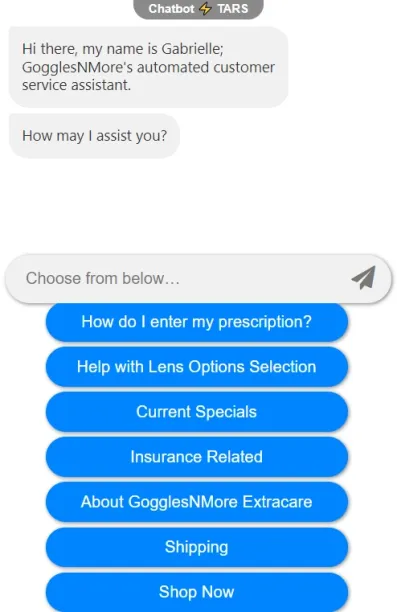
Conversational AI assistants can also be used to coach marketing and sales teams during a conversation with a prospect customer by fetching customer details and marketing data or providing best practices to close the deal.
Tips to marketing leaders:
- Businesses can use a combination of RPA and chatbots to automate end-to-end processes in CRM software.
- In addition to automation, AI and analytics can provide significant value to the end results of CRM automation. AI algorithms and analytics tools can be used for:
- Optimizing Prices and Generating Dynamic Pricing Models These advanced tools can be integrated with marketing automation software to develop pricing strategies that adapt in real-time, optimizing promotional and sales campaigns for maximum impact.
- Predicting Market Trends and Forecasting demand: AI and analytics can analyze vast amounts of data to predict shifts in market trends and customer demand. This insight allows for the customization of marketing materials and campaigns, ensuring they resonate with the target audience and leverage upcoming opportunities effectively.
See our comprehensive guide to read in detail how businesses can leverage AI for marketing.
Incorporating these technologies into your CRM and marketing automation strategies not only streamlines operations but also provides a competitive edge in crafting personalized, dynamic marketing campaigns and managing customer relationships more efficiently with CRM automation software.
Next steps
To explore emerging technologies in marketing, read our articles:
- Digital Transformation in Marketing: Top Trends & Technologies
- Marketing analytics with AI: Complete guide
To get a grasp of the marketing solutions landscape, scroll down our data-driven lists of:
And if you believe your business will benefit from CRM automation tools, feel free to check our comprehensive lists of:
And we can help you choose the right tool for your business:
This article was drafted by former AIMultiple industry analyst Alamira Jouman Hajjar.

Cem has been the principal analyst at AIMultiple since 2017. AIMultiple informs hundreds of thousands of businesses (as per similarWeb) including 60% of Fortune 500 every month.
Cem's work has been cited by leading global publications including Business Insider, Forbes, Washington Post, global firms like Deloitte, HPE, NGOs like World Economic Forum and supranational organizations like European Commission. You can see more reputable companies and media that referenced AIMultiple.
Throughout his career, Cem served as a tech consultant, tech buyer and tech entrepreneur. He advised businesses on their enterprise software, automation, cloud, AI / ML and other technology related decisions at McKinsey & Company and Altman Solon for more than a decade. He also published a McKinsey report on digitalization.
He led technology strategy and procurement of a telco while reporting to the CEO. He has also led commercial growth of deep tech company Hypatos that reached a 7 digit annual recurring revenue and a 9 digit valuation from 0 within 2 years. Cem's work in Hypatos was covered by leading technology publications like TechCrunch and Business Insider.
Cem regularly speaks at international technology conferences. He graduated from Bogazici University as a computer engineer and holds an MBA from Columbia Business School.
To stay up-to-date on B2B tech & accelerate your enterprise:
Follow on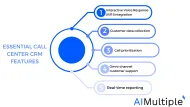
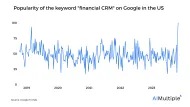
Comments
Your email address will not be published. All fields are required.